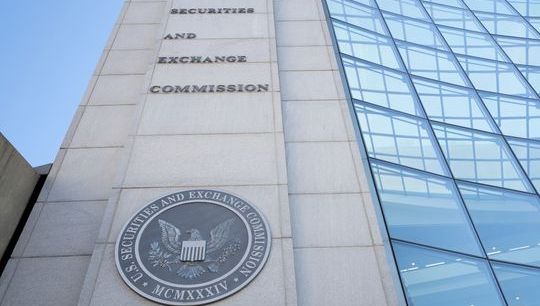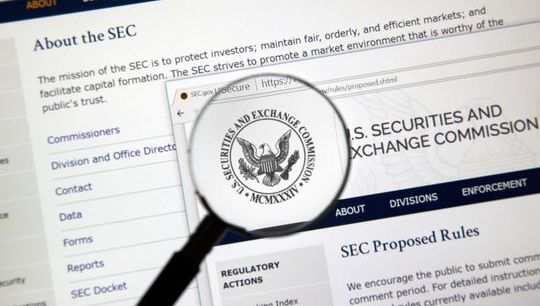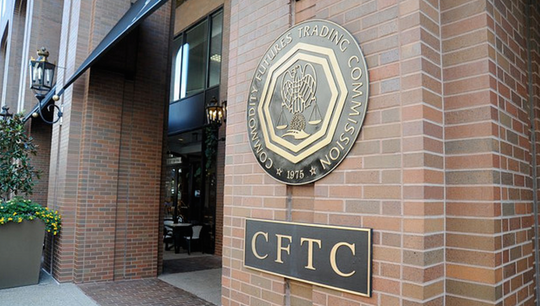Brexit and its Impact on the European Asset Management Industry
By Philippe Burgener and Michelle Barry, Maples Group
Published: 14 June 2019
Introduction
The outcome of the UK's 2016 referendum has already lead to significant changes to the European asset management industry (the "EAMI")[1]. These changes and decisions made by numerous financial services firms to relocate staff, operations and balance sheet to other European financial centres such as Luxembourg and Ireland and the outflows from UK domiciled investment funds are likely to remain in place irrespective of the ultimate form of Brexit. Brexit and its consequences may be considered as the single most significant European political event of the last two decades and it is set to have a profound impact on the EAMI.
Impact on the European Asset Management Industry
The EAMI is heavily regulated at European Union ("EU") level by three primary regulatory regimes:
- Undertakings for Collective Investment in Transferable Securities Directive (2009/65/EC) (“UCITS Directive”);
- Alternative Investment Fund Managers Directive (2011/61/EC) (“AIFMD”); and
- Markets in Financial Instruments Directive (2014/65/EU) (“MiFID”).
A significant number of FCA regulated UK firms and funds ("UK Entities") and European domiciled firms and funds ("EU Entities") have structured their operations on the basis of the passports available under the UCITS Directive, AIFMD and MiFID. In the aftermath of the Brexit vote, there was much uncertainty as regards the manner in which UK Entities and EU Entities could continue to do business in the EU and the UK respectively, with the loss of these passports (and therefore access to the European single market or the UK market, respectively) being the most significant concern for participants in the EAMI.
The EU and EU Member States have provided some helpful clarifications on certain matters in this respect and this should allow both UK Entities and EU Entities to take comfort that they can continue providing their services on a cross-border basis regardless of the final outcome of Brexit.
UK Asset Management Industry
The activities of UK authorised UCITS[2], AIFs, UCITS management companies, AFIMs and MiFID firms will be unaffected in the UK domestic market. In contrast, UK Entities' access to the European market post-Brexit will no longer be as seamless as it once was and there has been and will continue to be a certain level of disruption to business.
UCITS Management and Marketing
Under EU law, UCITS must be domiciled in the EU and may only be managed by an EU UCITS management company. Therefore, post-Brexit UK authorised UCITS will no longer qualify as UCITS but as non-EU AIFs and will lose their access to the passport. To address this potential consequence, a UK UCITS with European investors may need to consider providing an alternative solution, such as establishing an EU domiciled UCITS clone, to those investors.
Furthermore, UK UCITS management companies will no longer be permitted to manage EU UCITS post-Brexit. Therefore, the UK UCITS management company of an EU UCITS must be replaced by an EU UCITS management company or the EU UCITS could become self-managed.
AIFMD Management and Marketing
Unlike the UCITS Directive, the AIFMD recognises the concepts of 'non-EU AIFs' and 'non-EU AIFMs'. As a result, UK AIFMs managing UK AIFs may continue to do so post-Brexit.
However, to continue marketing in Europe, the UK AIFM would need to rely on the national private placement regime ("NPPR") of each EU Member State in which it intends to market the AIF. The NPPR is not a harmonised regime and EU Member States have adopted a variety of approaches in respect of the operation of the NPPR with certain EU Member States gold-plating the NPPR and others putting an outright ban on the marketing of AIFs that have not appointed an authorised EU AIFM in their jurisdictions.
The eventual extension of the passport to non-EU AIFs and non-EU AIFMs is contingent upon positive advice from ESMA which may only be given once ESMA is satisfied that there are no significant obstacles regarding investor protection, market disruption, competition and the monitoring of systemic risks. As the AIFMD has already been implemented in the UK it stands to reason that it could be granted equivalence. However, the granting of such equivalence to the UK and the likely timing thereof is an eminently political decision that is not certain. Other jurisdictions such as Switzerland and Hong Kong have been deemed equivalent but have not, to date, been able to benefit from the extension of the AIFMD passport.
Where a UK AIF is managed by a UK AIFM but is not marketed in the EU, it will fall outside the scope of the AIFMD.
MiFID
A significant number of EU UCITS management companies and EU AIFMs delegate the portfolio management function to UK MiFID firms. UCITS and AIFMD permit the delegation of this function to third country firms ("TCFs") provided the TCF is appropriately authorised and a cooperation agreement between the relevant competent authorities is in place. On 1 February 2019, ESMA confirmed that a multilateral memorandum of understand ("MMoU") had been agreed between ESMA and the European securities regulators and as such, delegation of portfolio management to TCFs (including UK MiFID firms) could continue.
The provision of services covered by MiFID to European clients by UK MiFID firms may prove more difficult, especially if such services are currently provided under the freedom to provide services out of the UK. Although MiFID foresees the possibility of TCFs such as UK MiFID Firms providing their services in the EU post-Brexit, this possibility is subject to harmonised conditions that may be imposed by EU Member States individually, depending on the type of clients the UK MiFID firm is targeting. Each EU Member State will need to make a political decision as to the approach such EU Member State will take. As with AIFMD, any equivalence decision by the EU Commission remains highly political.
UK MiFID firms that wish to continue providing their services in the EU post-Brexit have several options available to them. These include the setting up of an EU based MiFID firm, the establishment of a branch in each Member State in which they wish to provide their services and, if and when an equivalence decision is taken, the provision of services on a cross border basis (but then only to certain types of clients).
EU Asset Management Industry
Broadly speaking, the effect of Brexit on EU Entities will be less severe than the effect on UK Entities as EU Entities may need to comply with UK specific requirements to access the UK market, whereas their access to the EU market remains unchanged.
There is a risk, however, that if UK funds cannot be marketed in certain EU Member States through the NPPR, the funds domiciled in such EU Member States may not be permitted to market in the UK.
UCITS Management and Marketing
EU UCITS will no longer be permitted to appoint UK UCITS management companies nor will they have access to the UK market through the passport. Under UK law, EU UCITS will qualify as AIFs and will only be able to be marketed to retail investors if the EU UCITS is granted recognition under section 272 of the FSMA. In other cases, a notification for marketing to non-retail investors will need to be made under the UK NPPR regime. Furthermore, EU UCITS management companies managing UK UCITS may need to consider whether they require an additional licence to continue doing so post-Brexit.
AIFMD Management and Marketing
As the passport attaches to the AIFM rather than the AIF, the impact of Brexit in the context of AIFs differs to that of UCITS. EU AIFs managed by UK AIFMs may continue to be managed by UK AIFMs; however, they will lose access to the marketing passport. Furthermore, any UK AIFs managed by EU AIFMs will also lose access to the passport. In such circumstances, UK AIFMs managing EU AIFs and EU AIFMs managing UK AIFs would need to rely on the NPPR to continue marketing the AIFs in the EU. Essentially; any EU AIF that has appointed a UK AIFM, any UK AIF that has appointed an EU AIFM or any UK AIF that has appointed a UK AIFM that is currently in a marketing phase in the EU will be the most affected.
UK's Temporary Permission Regime
The FCA has provided significant clarification in respect of the manner in which EU Entities may continue to access the UK market in the event of a hard Brexit. The UK's temporary permissions regime ("TPR") will allow EU Entities that currently provide services or are registered for sale in the UK via a passport offered by the UCITS Directive, AIFMD or MiFID to continue operating, for up to three years, in the UK post-Brexit, while they seek the appropriate authorisation from the UK regulators provided they register under the TPR prior to Brexit.
The EU is not introducing a similar regime to the TPR, however, certain Member States have taken steps to ensure a transition period is available to UK Entities in their individual jurisdictions in the event of a hard Brexit.
Conclusion
Brexit continues to pose many challenges for participants in the asset management industry. While many are hoping for the best and preparing for the worst, it is clear that the post-Brexit asset management landscape will be different to what it was before Brexit.
Although it may be tempting to rely on possible equivalence decisions in the various areas discussed above to retain access to the European or UK markets, such decisions are eminently political, uncertain and unpredictable.
This has been recognised by UK Entities and EU Entities as they continue to copper fasten their Brexit contingency plans and safeguard their access to the European and UK markets respectively.








